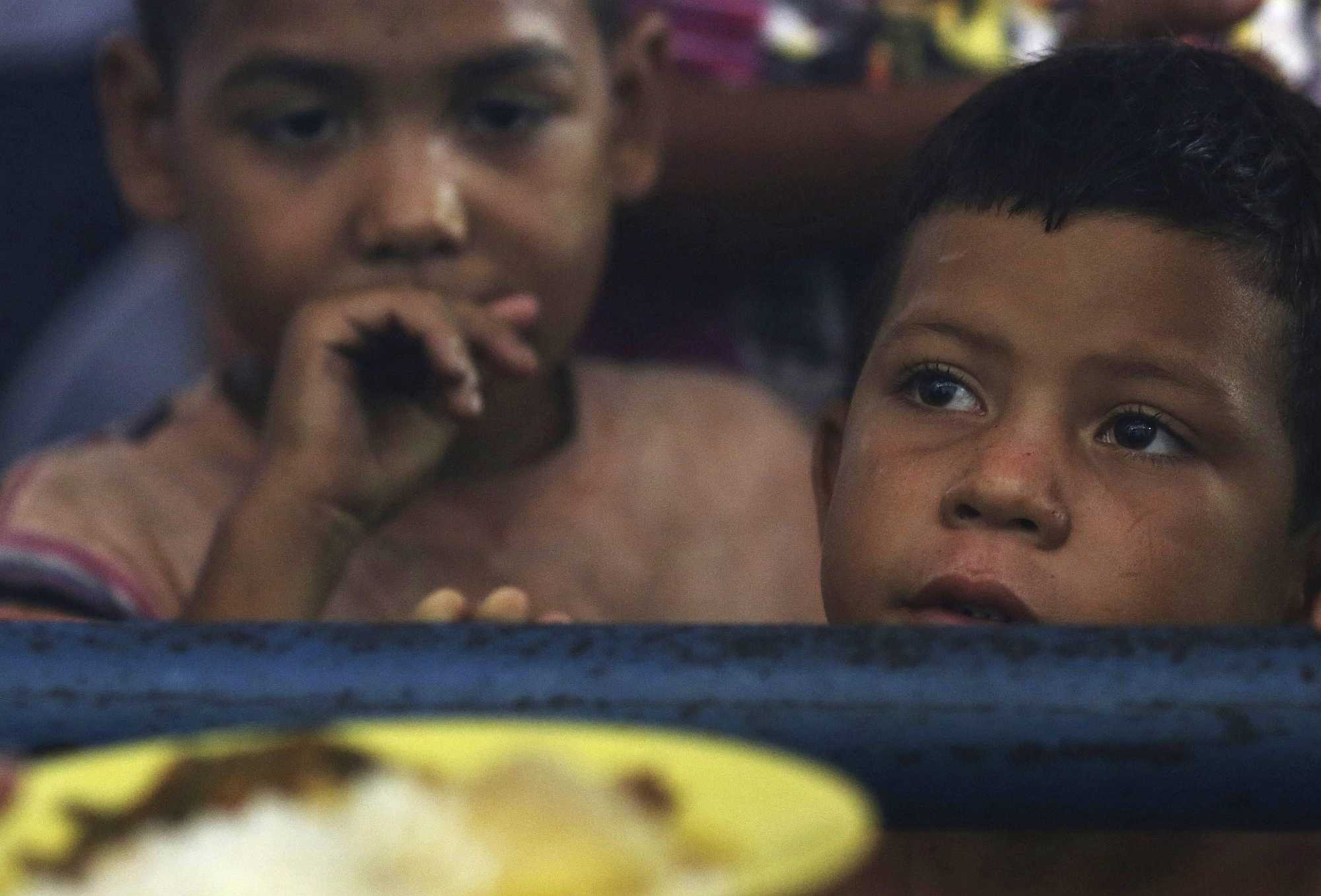The global north tends to view the global south as a source of refugees, and it often implements policies aimed at preventing those refugees from reaching the global north.
Brazil recently set a bold precedent that should make those northern states adjust the lens. Its policy toward Venezuelan refugees, in contrast to its wealthier peers, is pragmatic, humane and sensible.
Venezuela’s political, economic and social collapse has generated a population hemorrhage: More than 4.5 million, or one in seven Venezuelans, have left, and most remain in the region.
Colombia hosts around 1.5 million. About 260,000 have entered Brazil through its northern border with Venezuela, at a rate of about 500 per day. Three elements of the Brazilian response stand out.
First, Brazil has provided basic shelters and services — not detention — to meet the urgent and immediate needs of people streaming across the Venezuelan border into Roraima province.
Brazil partners with United Nations agencies, as well as international, regional and domestic aid agencies that contribute financial and logistical assistance. The Brazilian government has also initiated a policy to redistribute arrivals to the interior of Brazil to reduce the burden on Roraima.
Next, Brazil has expanded the scope of entitlement to refugee status. The 1984 Cartagena Declaration adopted a regional approach to refugee protection, mindful of the history of Latin American states as both producers and recipients of refugee flows.
The international refugee definition contained in the UN 1951 Refugee Convention is individualistic and requires proof that applicants fear personal persecution. But the Cartagena definition supplements that narrow approach by including people who have fled their countries because their lives, safety or freedom have been threatened by generalized violence, foreign aggression, internal conflicts, massive violation of human rights or other circumstances that have seriously disturbed public order.
In June 2019, Brazil’s National Committee for Refugees issued a detailed report concluding that the crisis in Venezuela falls under the purview of the Cartagena Declaration. People labeled as migrants elsewhere because they fall outside the narrow terms of the UN Refugee Convention definition are included as refugees under Cartagena.
Bolder Step
In December 2019, Brazil took an even bolder step: It dispensed with the requirement of individualized refugee status determination for each Venezuelan asylum applicant.
Applicants in Brazil, with documentary proof of identity and without a criminal record, will receive refugee status without an interview. Refugee status, in turn, entitles them to permanent resident status, access employment, public health care, education and other social services available to Brazilians.
After four years, they may apply for naturalization. Within the first month of the policy, about 21,000 Venezuelans were processed under this new system.
Put this in comparative perspective: Unlike the United States and Australia, Brazil has not set up detention centers, separated families and caged children in order to punish Venezuelans for fleeing intolerable circumstances.
That means that Brazil has not wasted scarce resources on vicious and futile deterrence strategies. Brazil also applies a refugee definition that responds to contemporary patterns of forced migration.
And unlike other states with sophisticated refugee status determination regimes, Brazil’s group-based recognition of Venezuelans avoids the creation of a mammoth backlog of Venezuelan asylum applications.
Resources that would have been wasted processing individual Venezuelan asylum claims will be directed at managing settlement and integration, and on determining asylum claims from other places.
Just Passing Through
Not all Venezuelans who arrive in Brazil seek asylum.
Many transit through Brazil in order to rejoin family or friends in nearby states, such as Argentina or Chile. Others go back and forth between Brazil and Venezuela to deliver food, medicine and other necessities to family and communities who remain there. And some do not wish to see themselves as refugees and so do not claim that legal status.
Brazil also allows Venezuelans to obtain two-year renewable temporary resident permits that also give them access to employment and to public services like health care and education.
There is good reason to believe that whether they are admitted on temporary permits, or permanently as refugees, most Venezuelans will go home voluntarily if and when the circumstances that caused them to flee have improved. That’s another advantage of regional integration programs that enable people to live, work and continue their lives in proximity to their country of origin.
Regional solidarity plays a paradoxical role in Brazil’s initiative. The Cartagena Declaration, as well as a regional free movement initiative under the Mercosur trade bloc, show the emergence of South American co-operation in migration.
On the other hand, President Jair Bolsonaro has not distinguished himself in the past as a champion of refugees and displaced people. One wonders whether his antipathy toward Venezuelan President Nicolás Maduro might have more to do with the Brazilian hospitality shown to Venezuelans fleeing Maduro’s regime than solidarity. One is reminded here of refugee politics during the Cold War. But whatever the motive, the current policy has much to commend it.
Not Perfect
The system is certainly imperfect. Brazil is a middle-income country, and so the quality and availability of public services is uneven.
Bureaucratic inefficiency and lack of co-ordination among different branches of the state cause delay and confusion. Venezuela is not the only source of asylum-seekers; Brazil also receives asylum seekers from Haiti, Africa and the Middle East.
Local aid organizations struggle to fill service gaps, but their resources are also strained by the surge in Venezuelan arrivals.
The absence of habitable and affordable accommodation is also a massive and critical problem in Brazil. Refugees may have no alternative but to live in extremely dangerous and violent places.
Language training is weak, though Portuguese is relatively easy for Spanish speakers to learn. Even though refugees can lawfully seek employment, some employers still take advantage of newcomers by overworking and underpaying them.
These are problems. But they are better problems to have than thousands of severely traumatized children, thousands of drowning deaths in the Mediterranean and the abuse, torture, rape and killing of people seeking refuge in the detention centers of Libya or Manus Island.
We have something to learn from the Brazilians. If Brazil can find an efficient, pragmatic way to welcome, protect and integrate hundreds of thousands of forced migrants arriving at its border, so can more affluent states. Good ideas — like good people — can migrate north, and we should welcome them.
Audrey Macklin is a Professor and Chair in Human Rights Law and Director of the Center for Criminology and Sociolegal Studies at University of Toronto
This article was originally published in The Conversation. Read the original article here: https://theconversation.com/brazils-humane-refugee-policies-good-ideas-can-travel-north-130749





